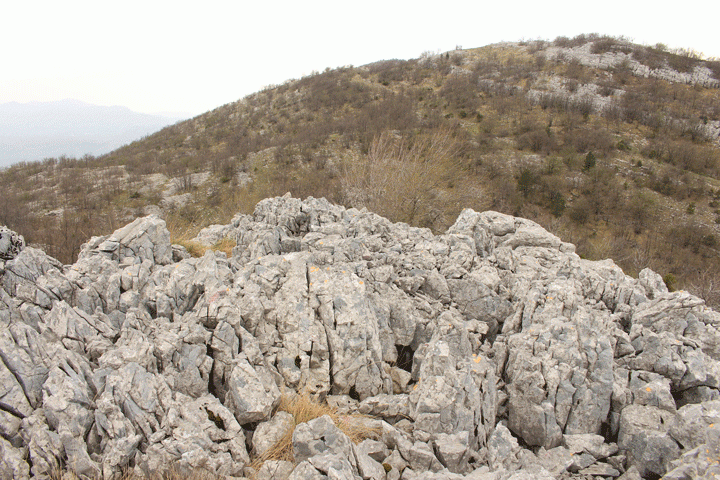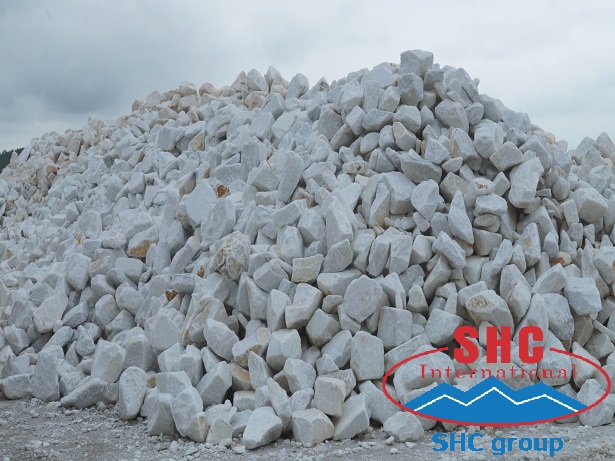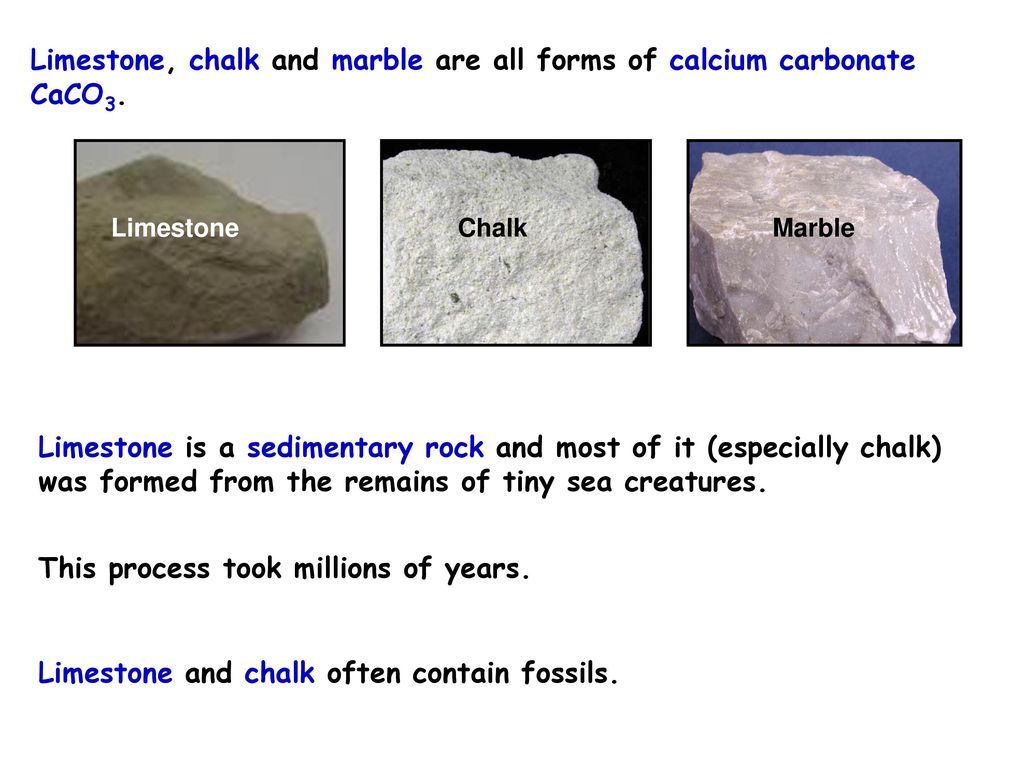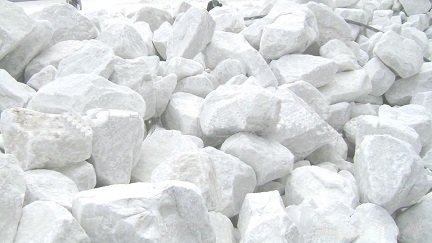The source of these calcium depositions are usually the left over shell secretions skeletal fragments of marine organisms such as corals.
Limestone chalk and marble are different forms of calcium carbonate.
Chalk is a soft form of limestone that is light in color.
A mineral is an element or a chemical compound that is normally crystalline and that has been formed as a result of geological processes part of mineralogical.
Tufa typically forms near hot springs or lakes where the waters have a high concentration of calcium carbonate.
Limestone is a very common sedimentary rock consisting of more than 50 calcium carbonate.
It is formed from the skeletal remains of very small marine organisms such as foraminifera.
Although it occurs in many different forms its origins can be traced back to either chemical or biochemical processes that occurred in the geological past often tens to hundreds of millions of years ago.
Calcium carbonate occurs as aragonite calcite and dolomite as significant constituents of the calcium cycle.
Chalk is a form of limestone.
These are two different forms of calcium carbonate itself.
By nature calcium carbonate occurs in the forms of chalk limestone and marble.
The carbonate minerals form the rock types.
The transformation process consists in decarbonating limestone to separate cao and co 2 and then recombining these elements in a chemical reactor the final product has the same chemical composition as gcc but with different properties in terms of particle size distribution particle.
Rocks such as chalk marble and limestone are mainly composed of the mineral calcite or other crsytalline forms of calcium carbonate but can contain other minerals or chemicals.
The key difference between limestone and chalk is that the limestone contains both minerals calcite and aragonite whereas chalk is a form of limestone which contains calcite.
Limestone chalk marble travertine tufa and others.
Calcium carbonate can also be produced synthetically in the form of precipitated calcium carbonate pcc.
The skeletal remains of dead sea animals sink to the seabed.
Over millions of years layer build up and pressure from the top layer changes the bottom layer into chalk.
Limestone is a type of sedimentary rock it mainly contains different crystal forms of calcium carbonate.
Therefore this mineral is highly alkaline.




























